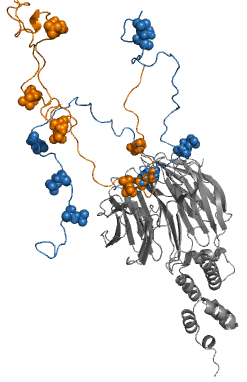Fuzzy complex
Fuzzy Complex
A fuzzy complex is a term used in mathematics and computer science to describe a system or concept that exhibits characteristics of both fuzziness and complexity. The term is often used in the context of fuzzy logic and complex systems theory.
Overview[edit | edit source]
Fuzzy complexes are systems that involve imprecise or vague information, where the boundaries between different elements are not clearly defined. This lack of precise boundaries gives rise to uncertainty and ambiguity within the system, making it difficult to apply traditional binary logic or deterministic models. In the field of fuzzy logic, fuzzy complexes are used to model and analyze systems that do not have clear-cut distinctions between categories or states. By allowing for degrees of truth and membership, fuzzy logic can better capture the nuances and uncertainties present in real-world systems. Complex systems theory, on the other hand, deals with systems that are characterized by a large number of interacting components, non-linear relationships, and emergent properties. Fuzzy complexes often arise in complex systems where the interactions between components are not fully understood or where the system's behavior is difficult to predict.
Applications[edit | edit source]
Fuzzy complexes have applications in various fields, including artificial intelligence, control systems, decision-making, and pattern recognition. In artificial intelligence, fuzzy complexes are used to create systems that can handle imprecise or uncertain information, allowing for more human-like reasoning and decision-making. In control systems, fuzzy complexes can be used to design controllers that can adapt to changing environments and uncertain inputs. By incorporating fuzzy logic into control systems, engineers can create more robust and flexible systems that can handle a wide range of operating conditions. In decision-making, fuzzy complexes are used to model and analyze situations where the available information is incomplete or ambiguous. By using fuzzy logic to represent uncertainty, decision-makers can make more informed choices in complex and uncertain environments. In pattern recognition, fuzzy complexes can be used to classify data that does not fit neatly into predefined categories. By allowing for degrees of membership and uncertainty, fuzzy complexes can improve the accuracy and reliability of pattern recognition systems.
See also[edit | edit source]
- Fuzzy logic
- Complex systems
- Artificial intelligence
- Control systems
- Decision-making
- Pattern recognition
Transform your life with W8MD's budget GLP1 injections from $125
W8MD offers a medical weight loss program NYC and a clinic to lose weight in Philadelphia. Our W8MD's physician supervised medical weight loss centers in NYC provides expert medical guidance, and offers telemedicine options for convenience.
Why choose W8MD?
- Comprehensive care with FDA-approved weight loss medications including:
- loss injections in NYC both generic and brand names:
- weight loss medications including Phentermine, Qsymia, Diethylpropion etc.
- Accept most insurances for visits or discounted self pay cost.
- Generic weight loss injections starting from just $125.00 for the starting dose
- In person weight loss NYC and telemedicine medical weight loss options in New York city available
- Budget GLP1 weight loss injections in NYC starting from $125.00 biweekly with insurance!
Book Your Appointment
Start your NYC weight loss journey today at our NYC medical weight loss, and Philadelphia medical weight loss Call (718)946-5500 for NY and 215 676 2334 for PA
Search WikiMD
Ad.Tired of being Overweight? Try W8MD's NYC physician weight loss.
Semaglutide (Ozempic / Wegovy and Tirzepatide (Mounjaro / Zepbound) available. Call 718 946 5500.
Advertise on WikiMD
|
WikiMD's Wellness Encyclopedia |
| Let Food Be Thy Medicine Medicine Thy Food - Hippocrates |
Translate this page: - East Asian
中文,
日本,
한국어,
South Asian
हिन्दी,
தமிழ்,
తెలుగు,
Urdu,
ಕನ್ನಡ,
Southeast Asian
Indonesian,
Vietnamese,
Thai,
မြန်မာဘာသာ,
বাংলা
European
español,
Deutsch,
français,
Greek,
português do Brasil,
polski,
română,
русский,
Nederlands,
norsk,
svenska,
suomi,
Italian
Middle Eastern & African
عربى,
Turkish,
Persian,
Hebrew,
Afrikaans,
isiZulu,
Kiswahili,
Other
Bulgarian,
Hungarian,
Czech,
Swedish,
മലയാളം,
मराठी,
ਪੰਜਾਬੀ,
ગુજરાતી,
Portuguese,
Ukrainian
Medical Disclaimer: WikiMD is not a substitute for professional medical advice. The information on WikiMD is provided as an information resource only, may be incorrect, outdated or misleading, and is not to be used or relied on for any diagnostic or treatment purposes. Please consult your health care provider before making any healthcare decisions or for guidance about a specific medical condition. WikiMD expressly disclaims responsibility, and shall have no liability, for any damages, loss, injury, or liability whatsoever suffered as a result of your reliance on the information contained in this site. By visiting this site you agree to the foregoing terms and conditions, which may from time to time be changed or supplemented by WikiMD. If you do not agree to the foregoing terms and conditions, you should not enter or use this site. See full disclaimer.
Credits:Most images are courtesy of Wikimedia commons, and templates, categories Wikipedia, licensed under CC BY SA or similar.
Contributors: Prab R. Tumpati, MD



